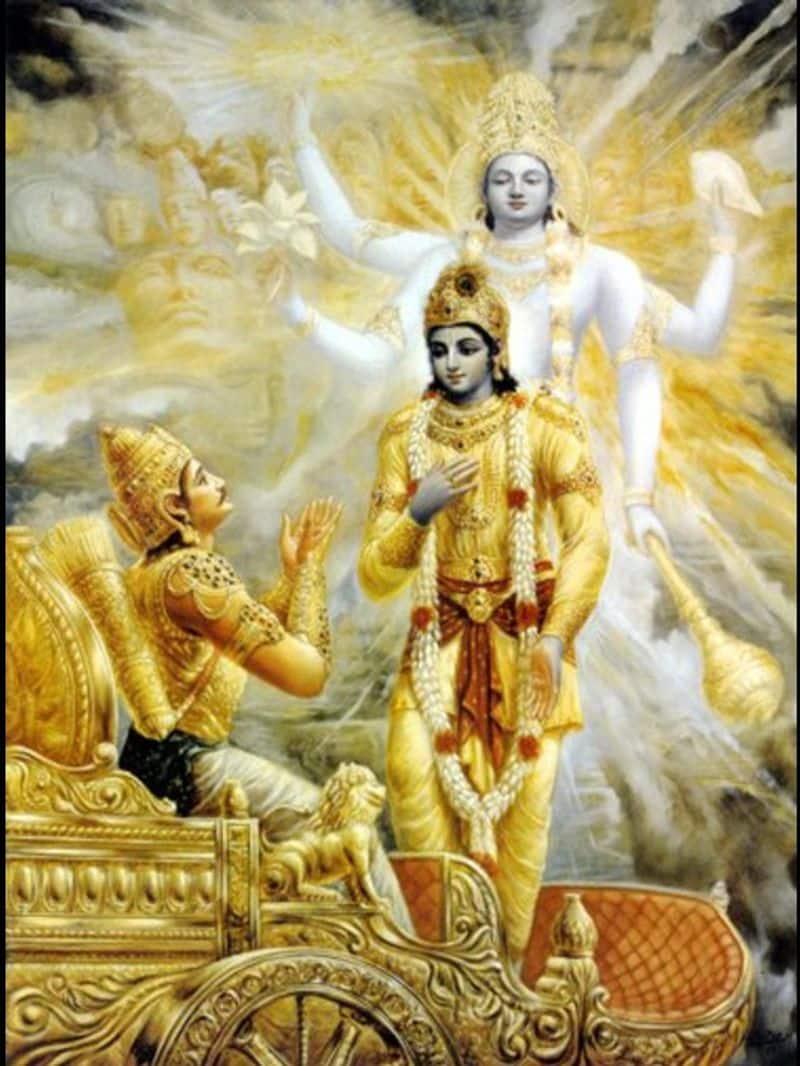
Bhagavad Gita Lessons: Morning Quotes On The Human Soul
Lord Krishna in the Bhagavad Gita Chapter 2 says:
Verse 12:
na tv evāhaṁ jātu nāsaṁ
na tvaṁ neme janādhipāḥ
na caiva na bhaviṣyāmaḥ
sarve vayam ataḥ param
Translation: Never was there a time when I did not exist, nor you, nor all these kings; nor in the future shall any of us cease to be.
Purport: I, you and every living being are eternally unique in this world. Don't lament on one's death as the soul is originally maintained by the Lord when you are within the body and when you leave the body. It's normal to experience inner conflicts and emotional struggles when facing life's challenges.
Verse 13:
dehino 'smin yathā dehe
kaumāraṁ yauvanaṁ jarā
tathā dehāntara-prāptir
dhīras tatra na muhyati
Translation : As the embodied soul continuously passes, in this body, from boyhood to youth to old age, the soul similarly passes into another body at death. A sober person is not bewildered by such a change.
Purport: This verse explains the concept of the eternal nature of the soul. It tells us that the individual soul, which is our true self, undergoes a change of body at the time of death and moves on to inhabit another body. Whether this new body is material or spiritual, there's no reason to grieve, as the soul continues its journey through different bodies in a cycle of reincarnation. The key message is not to mourn the changing of the physical body, as the soul remains eternal and continues its existence beyond each life.
Verse 17:
avināśi tu tad viddhi
yena sarvam idaṁ tatam
vināśam avyayasyāsya
na kaścit kartum arhati
Translation: That which pervades the entire body you should know to be indestructible. No one is able to destroy that imperishable soul.
Purport: This soul is described as one ten-thousandth part of the upper portion of the hair point in size. And therefore, nobody can destroy the soul. The soul is immortal. In simple terms, this verse explains that the tiny spiritual spark (the soul) is the core of our physical body.
Verse 20:
na jāyate mriyate vā kadācin
nāyaṁ bhūtvā bhavitā vā na bhūyaḥ
ajo nityaḥ śāśvato 'yaṁ purāṇo
na hanyate hanyamāne śarīre
Translation: For the soul, there is neither birth nor death at any time. He has not come into being, does not come into being, and will not come into being. He is unborn, eternal, ever-existing and primeval. He is not slain when the body is slain.
Purport: In simple terms, this verse is telling us that the soul, our inner spirit, is never born and never dies. It's not like our physical body, which is born and eventually dies. The soul is eternal, which means it has no beginning and no end. It has always existed, and it will always exist. It's not tied to the past, present, or future; it's timeless. There's no historical record of the soul coming into existence because it has always been there. Hence, nobody can kill the soul.
Verse 22 :
vāsāṁsi jīrṇāni yathā vihāya
navāni gṛhṇāti naro 'parāṇi
tathā śarīrāṇi vihāya jīrṇāny
anyāni saṁyāti navāni dehī
Translation: As a person puts on new garments, giving up old ones, the soul similarly accepts new material bodies, giving up the old and useless ones.
Purport: Just like we change our old clothes for new ones, the soul changes its material body when the old ones become worn out. The soul discards its old body and takes on a new one. This process is continuous, like changing clothes, and it happens as long as the soul exists.
Legal Disclaimer:
MENAFN provides the
information “as is” without warranty of any kind. We do not accept
any responsibility or liability for the accuracy, content, images,
videos, licenses, completeness, legality, or reliability of the information
contained in this article. If you have any complaints or copyright
issues related to this article, kindly contact the provider above.


















Comments
No comment